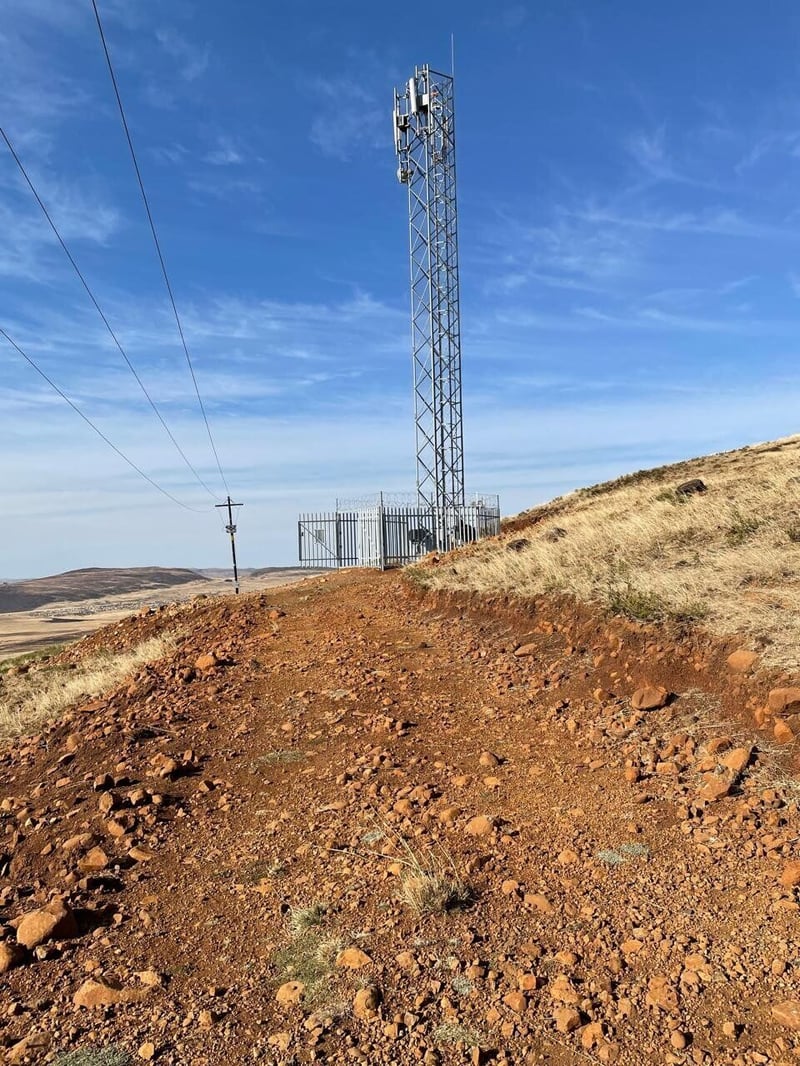Satellite Internet Won’t Solve South Africa’s Connectivity Crisis
Written by: Melini Moses Save to Instapaper
As South Africa weighs the promise of satellite internet, telecommunications experts are warning that it could widen, instead of close, the digital divide.
Despite global praise for services like Starlink, critics say the technology is too expensive, too limited, and too disconnected from the realities of rural life in South Africa.
Among them is Sean Shipalana, a leading voice in infrastructure development, who warns that the excitement around satellite risks overshadowing real, workable solutions.
“Satellite internet is not a solution for the rural poor. It’s a solution for the wealthy, for remote tourist lodges, and for niche cases. We cannot build a connected nation on technology that excludes the majority,” says Shipalana.
Shipalana is the Director of Moropa Site Solutions, a telecommunications company working to expand tower infrastructure particularly in rural, underserved communities.
He says while the promise of satellite sounds appealing, the practical realities cannot be ignored.
- The hardware alone costs more than R6000, with a monthly subscription that is impossible for most rural households to afford.
- The service requires constant electricity and fixed installation, making it ineffective in mobile, informal or load-shedding-prone environments.
- Starlink does not offer GSM or phone call functionality without specialist equipment. For rural communities being able to make a call is critical, especially in emergency situations.
“It is being sold as a silver bullet, but in reality, satellite is a designer solution for the few who can afford it, not a national strategy for our nation,” says Shipalana.
Jobs, Growth and Local Empowerment
Shipalana says reducing investment in tower infrastructure to prioritise satellite alternatives also means cutting the economic lifeline that tower ecosystems bring. They support thousands of jobs through ongoing maintenance, construction, and servicing of equipment. They also provide income to local landowners through ground rentals, while entire communities benefit from related investments such as power infrastructure upgrades, improved access to educational resources, and reliable communication.
“Satellite companies don’t build roots in communities. They don’t create jobs. They don’t ask how they can support local development. We need the solutions that address our nation’s specific challenges,” says Shipalana.
Moropa is calling on government and regulators to protect the local telecommunications economy. “If we want real, inclusive digital progress, it has to be built from the ground up. We must work with communities, for communities,” says Shipalana.
Submitted on behalf of
- Company: Moropa Telecommunications
- Contact #: 0835284755
Get new press articles by email
Express Yourself offers a wide range of communication services, from PR and Copywriting, to media and communication training. People, purpose and passion are at the core of Express Yourself. The company's watchword is excellence.
Latest from
- “Without BEE, We Wouldn’t Exist” – Telecoms Leader Warns Against Dismantling Empowerment Laws
- The Domino Effect On South Africa’s Health System
- Poor Network Connectivity Stifles Women Entrepreneurship in Rural South Africa
- Her Story. Her Success. 100 Reasons to Believe in Women in Business
- South African women entrepreneurs celebrated at WomX
- Favourite Person – A Love Story No One Saw Coming
- South African Innovation Targets Audit Failures and Corruption Loopholes
- System Failure - Why South Africa’s Rural Connectivity Is Falling Behind
- South Africa Needs an E-Hailing Ecosystem That Values People as Much as Profit
- PsorAfrica - A united effort to address Africa’s dermatology gap and access to medication
- Twytch Ushers In A New Era in E-Hailing
The Pulse Latest Articles
- Strategy Is Easy. Execution Is Everything (March 5, 2026)
- The Paradox Of Leadership: Ntombizone Feni’s First Year As Ceo (March 4, 2026)
- Beyond The Pit: Why Mining Partnerships Are Being Redefined (March 2, 2026)
- A Refreshing Reset For Your Tastebuds (March 2, 2026)
- Celebrating 125 Years Of Hansgrohe: Setting The Beat Of Water Since 1901 (February 25, 2026)
